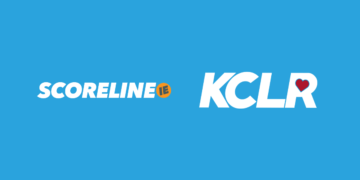Horse Racing Ireland has encouraged anyone who believes those within the industry are doping to come forward.
At the weekend, veteran trainer, Kilkenny based Jim Bolger claimed doping in racing was widespread and told the Irish Independent he knows who the drug cheats are.
Also, speaking to Sky Sports Racing, Bolger said: “My demand is for a level playing field. You don’t bring in a quarter tonne of steroids unless somebody is using them”.
Meanwhile, the body that represents Ireland’s racehorse trainers has pointed to an absence of positive drug tests in Irish-trained horses when racing abroad as evidence of how doping isn’t a major problem here.
The Irish Racehorse Trainers Association (IRTA) said it is “not aware” of the sorts of concerns outlined by Jim Bolger on Sunday.
Mr. Bolger has demanded more testing from the Irish Horseracing Regulatory Board.
In response, they’ve restarted their zero-tolerance for doping and will conduct 5,000 tests this year.
They released the following statement:
The Irish Horseracing Regulatory Board reaffirms to all stakeholders, the racing public, the wider thoroughbred industry, and the general public that we are committed to the highest standards of integrity within Irish racing.
Following comments made recently, the IHRB can once again stress there is a zero-tolerance approach to doping in Irish racing and we operate to the highest level using LGC Laboratories in Newmarket, who are one of five International Federation Horseracing Authorities certified laboratories in the world, and the same laboratory used by the British Horseracing Authority.
The IHRB will continue our extensive testing programme with 5,000 samples in 2021, once again including every race winner, additional raceday samples, out of competition samples and now also at unlicenced premises following on from the receipt of Authorised Officer status for 12 employees of the IHRB last month which allows us to access and sample any thoroughbred at any time in Ireland.
Each and every one of the samples taken are sent to LGC for analysis and any sample that returns an adverse analytical finding is acted upon, and details published, following our disciplinary process. LGC have been world leaders in anabolic steroid detection for over 60 years and most recently have led detection of these drugs in hair.
In the region of 25% of samples will be out of competition tests, including tests from unlicenced premises. Since receiving warrant cards from DAFM at the end of May, IHRB Authorised Officers have sampled at Studs, Consignors, Pre-Training Yards in addition to licenced trainers.
Denis Egan, CEO of the IHRB said, “There is no room for complacency when it comes to equine anti-doping. The IHRB have shown that by significant increases in testing over the last number of years, and through collaboration with LGC we have been able to take advantage of the science available. Our focus is on risk based and intelligence led strategy which directs us to get the right sample from the right horse at the right time. The appointment of IHRB officials as Authorised Officers further strengthens that.”
Brian Kavanagh, CEO of HRI said, “Ireland is a global leader in racing and breeding, and that position brings with it a responsibility to always be vigilant when it comes to anti-doping.
“Horse Racing Ireland considers it crucial that continuous investment is made in ensuring that testing is constantly increasing in both numbers and agility, utilising the most modern techniques, and is of an internationally accredited standard.
“HRI has consistently increased its investment in anti-doping through the IHRB in recent years, and that will continue to be the case.
“This is not a closed industry so I would encourage anybody who believes that there are people operating outside of the rules, to contact the IHRB and make their concerns known.”
The IHRB strongly encourage anybody with any information on any matter concerning the integrity of Irish racing to share such details through our Confidential Freephone number (1800 855846) and any information furnished will be dealt with in the strictest of confidence. This has been in place since 2015 and will remain a vital part of our comprehensive strategy to safeguard the reputation of Irish racing.



